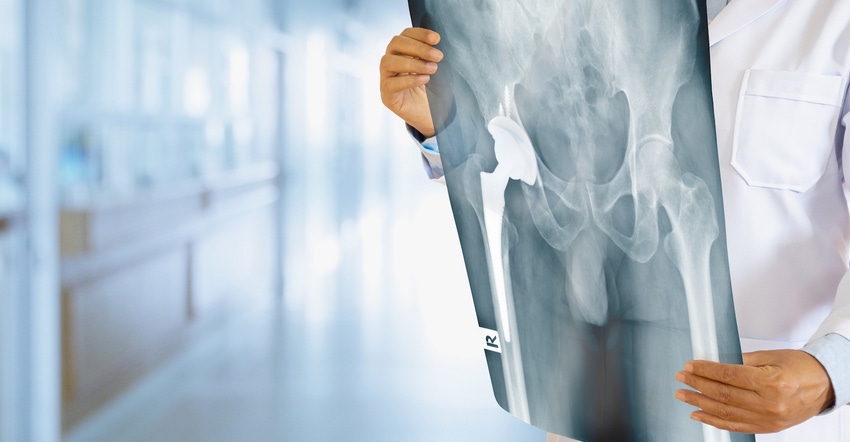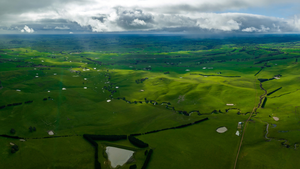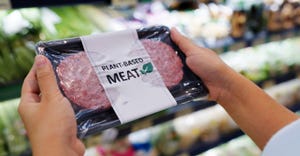Vegetarian women may face a higher risk of hip fracture compared to women who regularly eat meat, according to a new study.

Women who follow a vegetarian diet have a 33% higher risk of hip fracture compared to women who eat meat regularly, according to a new study (BMC Med. 2022(20):275).
Plant-based diets including vegan and vegetarian diets continue to rise in popularity. Millennials and Gen Z, for example—which comprise 47% of the population—have particularly high demand for plant-based foods. Growing interest in plant-based diets is underlined by strong market demand; in 2020, U.S. retail sales of plant-based foods grew a staggering 27% to reach $7 billion.
Researchers of the present study, published in BMC Medicine, argued vegetarian diets are often characterized by lower intake of nutrients known to support bone mineral density (BMD), such as protein, calcium and vitamin D, highlighting the need to understand the impact of vegetarian diets on hip fracture risk. To accomplish that goal, researchers studied women who were occasional meat eaters, pescatarians and vegetarians compared to those who were regular meat eaters.
The study comprised 26,318 women from England who were enrolled in the U.K. Women’s Cohort Study. To assess dietary habits over 12 months, participants completed a self-administered 217-item food frequency questionnaire (FFQ). Women who ate five or more servings of meat per week were classified as regular meat eaters, whereas women who ate fewer than five servings per week were considered occasional meat eaters. Vegans, who did not eat meat, fish, eggs or dairy, were combined with the vegetarian group due to a small number of vegan participants.
A total of 822 hip fracture cases, which were confirmed using hospital records, were observed over 22 years. The study found vegetarians were the only diet group with an elevated risk of hip fracture.
Lower body mass index (BMI) and body weight could be to blame for increased hip fracture risk, study authors argued. Adequate fat mass cushions impact force at the hips during falls and could increase bone strength by increasing mechanical loading and enhancing oestrogen production.
“Weight management may therefore be an important consideration in reducing hip fracture risk in vegetarians, but further research is required to explore the roles of BMI and body composition in hip fracture risk in vegetarians and meat eaters,” researchers wrote.
Lower intake among vegetarians of bone-boosting nutrients could be another reason behind the greater risk. “In our study, vegetarians had lower dietary intakes of protein, vitamin D and vitamin B12, but similar dietary calcium intakes to other diet groups,” according to researchers. However, increased hip fracture risk in vegetarians “was not explained by any dietary nutrient intake,” they wrote.
Researchers called for further research to explore the roles of BMI and nutrients that can help guide public health interventions to reduce hip fracture risk in vegetarians.
About the Author(s)
You May Also Like






